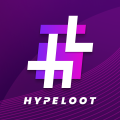Promotion
Publish ICO
Coins
Calendar
Crypto Events
News
DeFi
NFT
WEB3
Games
Trends
-
EN
English Русский Deutsch Español French Italian Portugues Indonesian Turkish Dutch العَرَبِيَّة বাংলা 中文(简体) 한국 हिन्दी 日本語
- Sign In

Blockchain Studios was created on the premise that blockchain technologies were set to break through into consumer use cases and technologies. First movers, such as CryptoKitties and Etheremon, have crossed into popular culture as new forms of collectibles. They are digital assets that can be owned and traded in the same way that comic books or artwork can be bought and sold in the physical world. Digital collectibles have paved the way for new applications of blockchain technologies. We now refer to these assets as non-fungible tokens (NFTs) – pieces of digital content that are unique, exist as a fixed number and can be bought and traded. In this context, a blockchain can also serve as a ledger that maintains ownership of NFTs. The most widely used NFT is the ERC721 standard, developed on the Ethereum blockchain. The novelty that ERC721 presents for blockchain-based games implementing non-fungible assets as part of the game dynamics is the minting mechanism, which is not controlled by smart contract code, but is instead under the control of the game developer. The first wave of collectibles, including Rare Pepe or CryptoPunks, received broad interest despite the poor user experience. What has pushed digital tokens into the cultural mainstream has been the digital collectible token standard, ERC721. This standard allows users to own individually identified digital assets in the same manner as physical ones in the real world. Users can identify, own, modify or manipulate a digital asset as they might do a piece of art or car, creating the category of digital collectibles. Human nature draws individuals to collect or value rare or unique items, from shells in the Stone Age, to paintings, coins or stamps in the modern era. It is not surprising that, even considering the short lifetime of the Ethereum ERC721, the number of NFT-based projects has already mushroomed to over 100. The ERC721 standard means that developers can harness this human desire and open up a new category of ownership. We anticipate that many cultural and artistic endeavours will make this leap through digital verification – from unique art created and owned digitally, to the ownership of creative assets, such as films and images. Blockchain Studios was set up in anticipation of this move towards digital assets, but also in the understanding that gaming would be one of the first creative industries to make this transition.
It is difficult at these early stages to make a call on the project. We need some further transparency – which the project reps on its Telegram group promise is coming. However, we feel that the idea itself is both revolutionary and feasible – Cryptokitties has proven that. Watch this space for further updates as they come in.

















This offer is based solely on information provided by the offeror and other publicly available sources.
The token sale or exchange event is completely independent of ICOholder. ICOholder is not involved in any way, including technical support or promotion.
We list token sales from entities with which we have no relationship to help users track overall activity within the token sector. This information is not intended as advice, and you should seek professional or specialist guidance or conduct your own due diligence before making any decisions based on our content.
Any terms and conditions regarding token acquisition are solely between contributors and the token issuer. ICOholder is not the seller of these tokens.
ICOholder is not legally responsible for any representations made by third parties about any token sale. Any claims for breach of contract must be directed against the listed token issuing entity.
If you have concerns about the nature, legality, or propriety of a token sale or the involved individuals, please contact info@icoholder.com with detailed information.